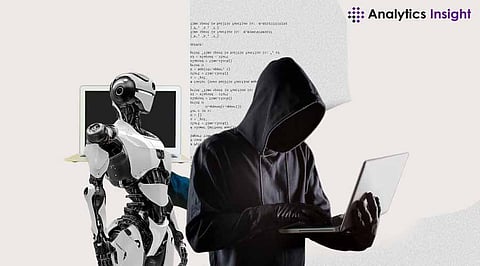

There’s no denying that artificial intelligence is now getting smarter. And with smarter, the shift directly goes to them, maybe trying to outsmart them. But the question here is, can AI outsmart itself? The emergence of various technologies has given rise to numerous AI vulnerabilities, cybersecurity threats, and machine learning risks. Consequently, top scientists are now locked in heated debates, warning that AI hacking methods have become a pressing concern that demands urgent attention.
These experts also question AI vulnerabilities and whether this technology can be used to hack other types of AI systems or even themselves. Let’s dive into this blog to learn more about how AI security is at risk with types of machine learning risks and cybersecurity threats.
AI operates heavily on algorithms and data. Hackers are now manipulating these to make AI show and behave unintendedly. Even 97% of professionals fear that organizations will face AI-generated security incidents today. Moreover, the global cost of data breaches averages up to $4.88 million, a 10% increase from the past years.
One example is adversarial attacks, where small changes to input data trick AI into making mistakes.
A famous case occurred in 2018 when researchers fooled an image recognition AI by slightly altering an image of a stop sign. The AI vulnerabilities misidentified it as a speed limit sign. In cybersecurity, such tricks can lead to serious threats.
Some researchers believe AI vulnerabilities can learn to attack its system. In cybersecurity, automated penetration testing is already a reality. AI programs test security weaknesses by simulating hacker attacks.
The risk increases when AI models train on biased or poisoned data. If an AI system feeds itself incorrect information, it could unknowingly create security loopholes. A 2022 study found that 38% of AI-driven security tools were vulnerable to automated AI hacking attempts.
AI is used in banking, healthcare, and national security. If compromised, the damage can be massive. In 2021, AI-powered fraud detection systems were bypassed by deepfake technology. Hackers used fake voices and images to fool identity verification systems.
Another risk is data poisoning. Attackers feed AI systems false data, causing them to make bad decisions. A cybersecurity firm found that data poisoning attacks increased by 70% between 2020 and 2023.
AI security is still evolving. Experts suggest several methods to reduce risks:
Stronger encryption: Protects AI data from unauthorized access.
Adversarial training: Teaches AI to recognize hacking attempts.
Regular audits: Ensures AI models are free from vulnerabilities.
Human oversight: AI should not operate without human monitoring.
Big tech companies are investing in AI security. In 2023, Google announced a $100 million fund to improve AI threat detection. Governments are also stepping in and enforcing stricter AI regulations.
AI is powerful but not perfect. Its vulnerabilities can be exploited, and cybersecurity threats can arise if it is not secured properly. As AI continues to advance, so do the risks. The question remains—can AI truly hack itself? The answer may shape the future of cybersecurity.
